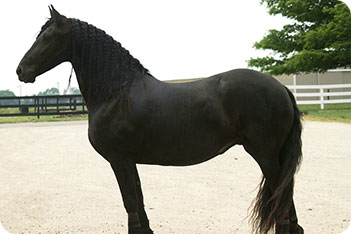
Gastric Ulcers
Vet, Horse First Aid
From: Equestrian and Horse | Horse Ailments

Equine Gastric Ulcers
The term used is Equine gastric ulcer syndrome and just like humans horses can suffer from gastric ulcers with the horses diet and fitness playing a major role.
Horses it affects
Any horse can suffer from gastric ulcers horses, those who are in stressful exercise regimes, high concentrate diets, stabled horses or who frequently travel for long periods without food are most at risk.
Why do horses get ulcers
Horses fed high starch cereal feeds and low roughage diets are most at risk from equine gastric ulcer syndrome, the reason for this is horses in the wild eat little and often and therefore allow small snacks to flow continuously through the digestive system in amounts that the stomach can deal in order to neutralize the stomachs acids.
Eating little and often also allows plenty of time for the horse to chew and salivate the food, because saliva contains bicarbonate of soda when the food arrives in the stomach it is already helping to neutralize the gastric acids in the horses stomach which cause the ulcers.
When you feed a horse a high starch diet it contains too many volatile fatty acids which disrupt the stomach defenses against the stomachs acids which combined with a low roughage diet will disrupt the stomachs ability to defend itself against the ulcers.
Stress causes the less blood flow to go through to the stomach thereby interrupting the horses natural digestive processes.
Exercise causes less blood flow to the stomach as well as causing the stomach to empty itself, often disrupting the digestive processes to allow the heart and lungs to function more efficiently and in so doing causing gastric acid to be produced with nothing within the stomach to neutralize it.
Symptoms
- Loss of appetite
- Loss of condition
- Lethargy
- Diarrhoea
- Mood change
- Frequent colic's
Treatment
- Feed little and often.
- Your vet may prescribe a treatment, for example omeprazole.
- Feed concentrate feeds that are low volatile fatty acids.
- Turn horses out as often as possible to allow them to graze and socialize, this is beneficial for the stomach and the brain.
- Limit travel time where possible. For long journeys roughage can be given to help the horse to combat stomach acid ( for example several small hay nets throughout the journey).